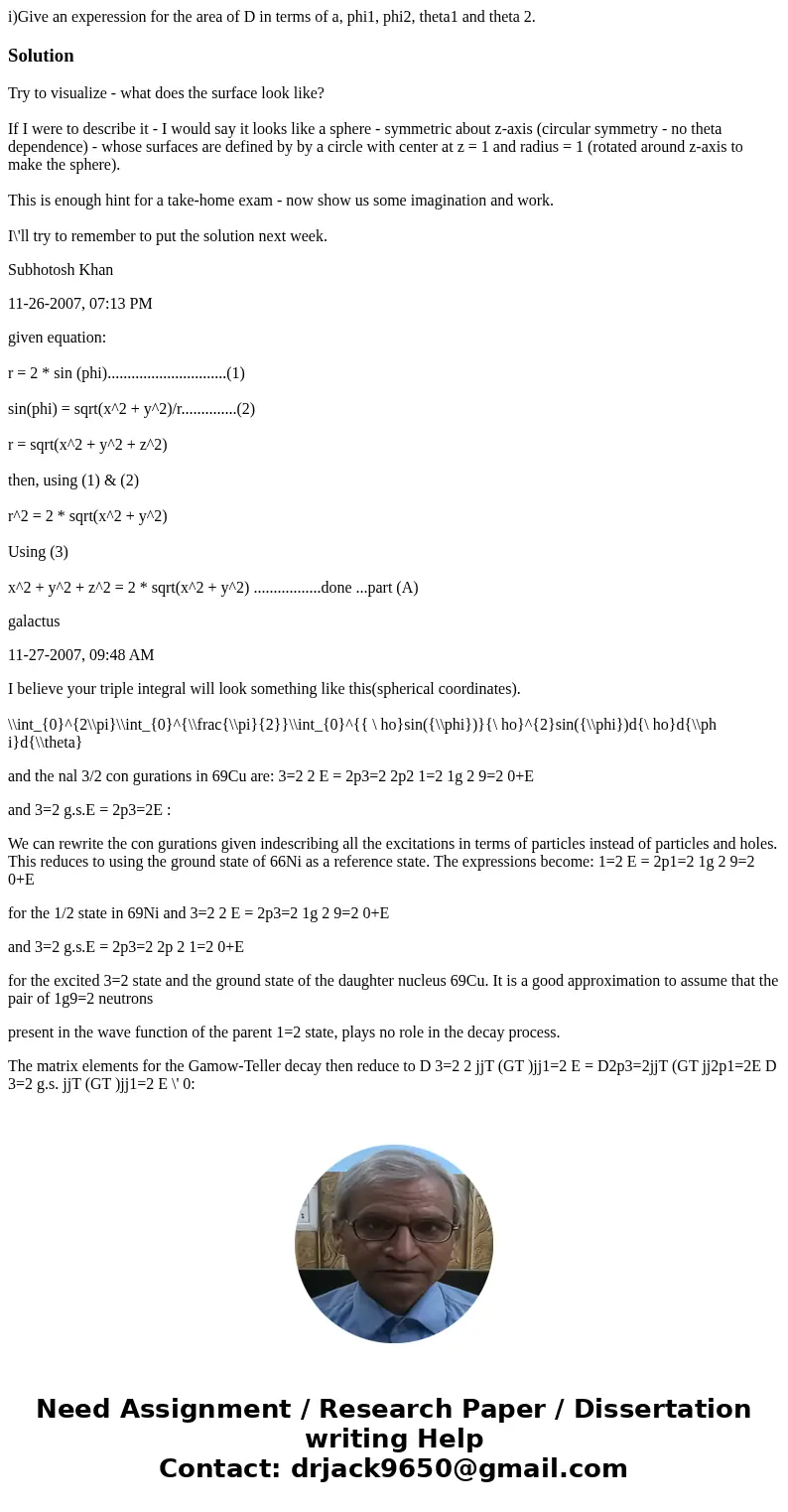iGive an experession for the area of D in terms of a phi1 ph
i)Give an experession for the area of D in terms of a, phi1, phi2, theta1 and theta 2.
Solution
Try to visualize - what does the surface look like?
If I were to describe it - I would say it looks like a sphere - symmetric about z-axis (circular symmetry - no theta dependence) - whose surfaces are defined by by a circle with center at z = 1 and radius = 1 (rotated around z-axis to make the sphere).
This is enough hint for a take-home exam - now show us some imagination and work.
I\'ll try to remember to put the solution next week.
Subhotosh Khan
11-26-2007, 07:13 PM
given equation:
r = 2 * sin (phi)..............................(1)
sin(phi) = sqrt(x^2 + y^2)/r..............(2)
r = sqrt(x^2 + y^2 + z^2)
then, using (1) & (2)
r^2 = 2 * sqrt(x^2 + y^2)
Using (3)
x^2 + y^2 + z^2 = 2 * sqrt(x^2 + y^2) .................done ...part (A)
galactus
11-27-2007, 09:48 AM
I believe your triple integral will look something like this(spherical coordinates).
\\int_{0}^{2\\pi}\\int_{0}^{\\frac{\\pi}{2}}\\int_{0}^{{ \ ho}sin({\\phi})}{\ ho}^{2}sin({\\phi})d{\ ho}d{\\ph i}d{\\theta}
and the nal 3/2 con gurations in 69Cu are: 3=2 2 E = 2p3=2 2p2 1=2 1g 2 9=2 0+E
and 3=2 g.s.E = 2p3=2E :
We can rewrite the con gurations given indescribing all the excitations in terms of particles instead of particles and holes. This reduces to using the ground state of 66Ni as a reference state. The expressions become: 1=2 E = 2p1=2 1g 2 9=2 0+E
for the 1/2 state in 69Ni and 3=2 2 E = 2p3=2 1g 2 9=2 0+E
and 3=2 g.s.E = 2p3=2 2p 2 1=2 0+E
for the excited 3=2 state and the ground state of the daughter nucleus 69Cu. It is a good approximation to assume that the pair of 1g9=2 neutrons
present in the wave function of the parent 1=2 state, plays no role in the decay process.
The matrix elements for the Gamow-Teller decay then reduce to D 3=2 2 jjT (GT )jj1=2 E = D2p3=2jjT (GT jj2p1=2E D 3=2 g.s. jjT (GT )jj1=2 E \' 0:

 Homework Sourse
Homework Sourse